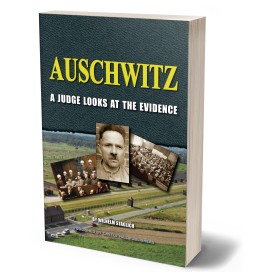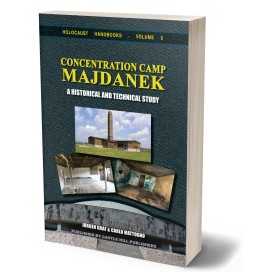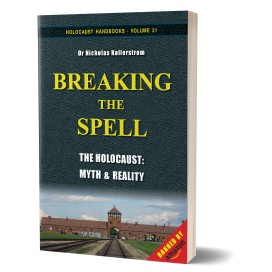Rudolf, Germar: Love - The Pursuit of Happiness
Language: English
Description
Rudolf, Germar: Love - The Pursuit of Happiness
2. edition, London: Armreg Ltd., 2024
Short description:
Rudolf's autobiography on the sensual and emotional aspects of his life: love, affection, romance and erotica, as well as the lack of it. It tells about his human relationships with parents, siblings, friends and girlfriends, wives and children, and pets; about his trials and tribulations as a husband, and most importantly as a father of five children. This book might assist many readers to understand themselves and to help resolve relationship conflicts. It is an account filled with both humility and humor.
Long description:
This autobiography is a rare, candid account of male sexuality and coming of age in the late 20th century. It will be of interest to sociologists. It starts out in West Germany prior to Germany’s reunification, and follows the author’s life later in the UK and the U.S. The author writes of his boyhood and early sexual and emotional growth, describing the challenges with a perspective that most adult males choose to forget or brush aside. As such, this book might assist many readers to understand themselves. It is an account filled with both humility and humor.
The author retells the stories of his encounters throughout his life with girls and women with whom he tried to find lasting love and affection, as well as romantic and erotic fulfillment. He also gives his perspective of how girls and women were similarly attempting to find the same with him. Almost all these attempts were foiled by flukes of fate or mismatched personalities. Frustrating as love often is, the message is that he has never given up seeking love.
In addition to providing insights into male romance and sexuality, the book also delves into the problems of modern marriage as well as the challenges parents face who raise adopted children. In this regard, the writer frankly describes the at times shocking issues which he and his wife faced in raising two small, adopted children who had been severely traumatized as toddlers by their biological parents. The way he then describes how he patiently tackled those challenges and helped healing those children will be inspiring for other adoptive parents struggling with similar issues.
The writer ties in all the above issues with his political conundrum. This account does not and cannot ignore post-war politics. The author is a political dissident, though not by choice. He is an historical scholar whose minority conclusions have a bearing on some salient issues of World War Two which still shape modern political discourse. Not only was the writer imprisoned in Germany for his research, but he found out that his historical work haunted him also abroad in Great Britain and the U.S., although his activities were perfectly legal there.
The author also touches on his relaxed, natural attitude towards his body, and how behaviors which were never in issue in Europe could turn someone’s life into a living hell in the U.S. He describes his collision with U.S. laws against skinny dipping (though he was never charged with that offense). His story sadly shows an unhealthy attitude of U.S. society toward the human body. As Rudolf puts it: “I have little tolerance for people who declare the natural state of anything a crime.”
246 pages, paperback.





